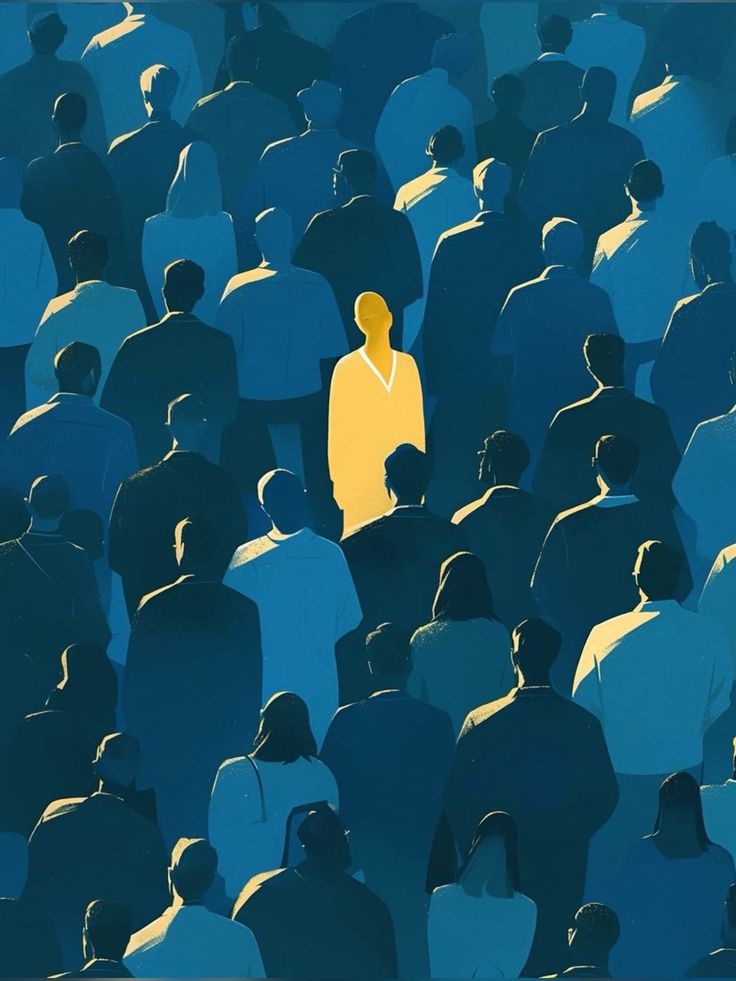You walk into cabin crew training thinking you’ll learn everything—safety protocols, service standards, emergency procedures. And you do. But the moment you step onto that first international flight, you realize training was just the prologue. The real education? That happens at 35,000 feet, somewhere between turbulence and time zones, when you’re managing a cabin full of strangers with nothing but your instincts and a service trolley.
After years of flying, I’ve collected lessons that no manual ever covered. These are the things I learned after years as cabin crew—the unspoken truths, the survival tactics, the moments of clarity that only come from living this life. If you’re considering this career, already flying, or simply curious about what happens behind the galley curtain, here’s what the job really teaches you.

1. Your Energy Manages the Entire Cabin—Not Your Script
Training gives you scripts. Greetings, safety demos, service flows. But what they don’t tell you is that passengers don’t respond to your words—they respond to your energy.
I learned this on a delayed flight to Dubai. Passengers were frustrated, the mood was tense, and I could’ve stuck to the standard apology script. Instead, I walked through the cabin with genuine calm, made eye contact, acknowledged their frustration without over-explaining. Within minutes, the energy shifted.
Things I learned after years as cabin crew: people mirror what you project. If you’re anxious, they’ll be anxious. If you’re composed, even in chaos, they’ll trust you. This isn’t about faking confidence—it’s about mastering your internal state so you can hold space for others. That’s a skill no training manual can teach.
2. The Art of Reading People in 3 Seconds
You develop a sixth sense for reading passengers the moment they board. The businessman who’ll be demanding. The nervous flyer who needs reassurance. The family that’ll need extra attention. The solo traveler who just wants to be left alone.
This isn’t profiling—it’s pattern recognition built from thousands of interactions. You learn to spot body language, tone shifts, micro-expressions. And this skill? It becomes your superpower.
Things I learned after years as cabin crew: emotional intelligence isn’t a soft skill. It’s a survival mechanism. The ability to assess, adapt, and respond to different personalities in real-time is what separates good crew from great crew. And it’s a skill that translates to every area of life—negotiations, relationships, leadership.

3. Boundaries Are Non-Negotiable (Even at 35,000 Feet)
In training, you’re taught to be service-oriented. Polite. Accommodating. But they don’t prepare you for the passenger who treats you like a personal assistant, the handsy traveler, or the person who mistakes your kindness for weakness.
I learned the hard way that setting boundaries is not rude—it’s professional. Early in my career, I would over-extend myself, saying yes to every request, tolerating inappropriate behavior because I wanted to be “nice.” It drained me.
Things I learned after years as cabin crew: you can be kind and firm at the same time. You can smile while saying no. You can maintain service excellence without sacrificing your dignity. The moment I started setting clear, respectful boundaries, my job became infinitely easier. And passengers respected me more for it.
4. Flexibility Is Your Only Real Plan
You can plan your layover itinerary, your meal prep, your sleep schedule. But the moment you step into this job, you realize: nothing is guaranteed.
Flights get rescheduled. Crew changes happen last minute. Your 24-hour Dubai layover becomes a 12-hour turnaround. Your rest day gets called in. Your carefully packed lunch gets left in your locker during a last-minute gate change.
Things I learned after years as cabin crew: rigidity is your enemy. The people who thrive in this career are the ones who can pivot without panic, who see changes as challenges rather than catastrophes. You learn to pack light emotionally. To let go of expectations. To find joy in the unplanned.
This lesson reshaped how I approach life. Plans are beautiful, but adaptability is freedom.
5. You’ll Become Fluent in Unspoken Communication
There’s a language cabin crew speaks that passengers never see. A raised eyebrow from across the galley. A subtle nod during boarding. A particular tone on the intercom. These micro-signals keep the operation running smoothly.
But beyond crew communication, you also become fluent in reading what passengers aren’t saying. The woman who’s quietly crying in 32F. The man whose breathlessness signals a panic attack. The child who’s overstimulated but can’t articulate it.
Things I learned after years as cabin crew: silence often speaks louder than words. You learn to listen with your eyes, to notice what’s happening beneath the surface. This heightened awareness doesn’t just make you better at your job—it makes you a more empathetic human being.
6. Self-Care Isn’t Selfish—It’s Strategic
The wellness talks in training are generic: drink water, get sleep, eat well. But they don’t prepare you for the reality of circadian rhythm chaos, irregular meal times, dehydration, and emotional exhaustion from managing hundreds of people daily.
I learned this after hitting burnout two years in. I was running on adrenaline, skipping meals, not prioritizing rest. My skin broke out, my mood tanked, my performance suffered.
Things I learned after years as cabin crew: self-care is not a luxury—it’s a job requirement. If you don’t take care of your body and mind, you cannot take care of others. I started building non-negotiable routines: hydration strategies, portable nutrition, sleep hygiene hacks, mental reset practices between flights.
The crew who last in this industry are the ones who treat their wellbeing like a professional asset, not an afterthought.
7. Cultural Intelligence Is Your Most Valuable Currency
Training covers basic cultural etiquette—don’t show the soles of your feet in certain cultures, understand dietary restrictions, be respectful of religious practices. But real cultural intelligence? That’s built through lived experience.
You learn that a smile doesn’t mean the same thing everywhere. That directness is valued in some cultures and offensive in others. That service expectations vary wildly depending on the route.
Things I learned after years as cabin crew: cultural fluency is about humility and observation. It’s about recognizing your own biases and being willing to adapt your approach. The best crew members don’t impose their worldview—they meet passengers where they are.
This skill has made me a better traveler, a better communicator, and a better global citizen. It’s one of the most underrated benefits of this career.
8. The Galley Is Where Real Mentorship Happens
Formal training lasts a few weeks. Real training? That happens in the galley during service, during delays, during emergencies.
The senior crew member who shows you how to handle a difficult passenger with grace. The colleague who teaches you the hack for faster service. The flight attendant who talks you down after a hard flight. These moments are where you truly learn the craft.
Things I learned after years as cabin crew: mentorship isn’t always formal. Some of the best lessons come from watching how experienced crew handle pressure, how they communicate under stress, how they protect their energy while still delivering excellence.
I’ve learned more from galley conversations than I ever did from a manual. And now, as a more experienced crew member, I try to pay that forward.
9. Your Mental Resilience Will Be Tested (And Built)
There will be flights that break you. Medical emergencies. Aggressive passengers. Mechanical issues. Days when you question why you chose this career.
I remember a particularly rough flight—a disruptive passenger, a sick child, a crew member who called in sick last minute, leaving us understaffed. I cried in the galley afterward. But I also showed up the next day.
Things I learned after years as cabin crew: resilience isn’t about never breaking. It’s about how you rebuild. This job forces you to develop mental toughness because there’s no other option. You learn to compartmentalize, to process emotions later, to keep moving even when you’re exhausted.
This has been one of the most transformative aspects of the job. I’m not the same person I was before I started flying. I’m stronger, more resourceful, more capable of handling uncertainty.

10. This Job Is a Lifestyle, Not Just a Career
Training prepares you for the technical aspects. But it doesn’t prepare you for what this job does to your life.
Your social circle changes because your schedule is unpredictable. Your relationships are tested because you’re always leaving. Your concept of “home” becomes fluid. You miss birthdays, holidays, important moments.
But you also gain something rare: a life that’s not confined to one city, one routine, one version of normal. You collect sunrises in different time zones. You build friendships in galleys and layover hotels. You learn that life doesn’t have to look like everyone else’s to be fulfilling.
Things I learned after years as cabin crew: this career is not for everyone, and that’s okay. It requires sacrifice, but it also offers freedom. It demands flexibility, but it gifts you with perspective. It’s exhausting and exhilarating in equal measure.
The key is knowing whether this lifestyle aligns with who you are—or who you want to become.
Final Thoughts: The Things Training Never Taught Me
Looking back at my years in the sky, I’m struck by how much of this job is learned on the ground—emotionally, mentally, personally. Training taught me procedures. Experience taught me people. Training gave me a manual. Life gave me wisdom.
Things I learned after years as cabin crew have shaped not just my career, but my entire worldview. I’ve learned to read people better, set boundaries without guilt, adapt without resistance, and find strength I didn’t know I had.
If you’re considering this career, know this: the job will challenge you in ways you can’t predict. But it will also teach you things about yourself, about the world, about humanity—that no classroom ever could.
And if you’re already flying? Keep learning. Keep evolving. Keep collecting those lessons that no manual will ever cover.
Want more insider insights from the aviation industry, remote work strategies, and lifestyle design for ambitious professionals? I share deeper reflections, career pivots, and strategic content on my Medium blog and connect with a community of globally-minded professionals on LinkedIn. Let’s keep the conversation going—because the best lessons are the ones we learn together.
About High View Point
High View Point is a content platform at the intersection of aviation, travel, and remote work opportunities. Founded by Shrishtii Saini, a former cabin crew member turned content strategist, we provide credible insights, strategic career guidance, and forward-thinking lifestyle design for professionals who live and work beyond borders.







